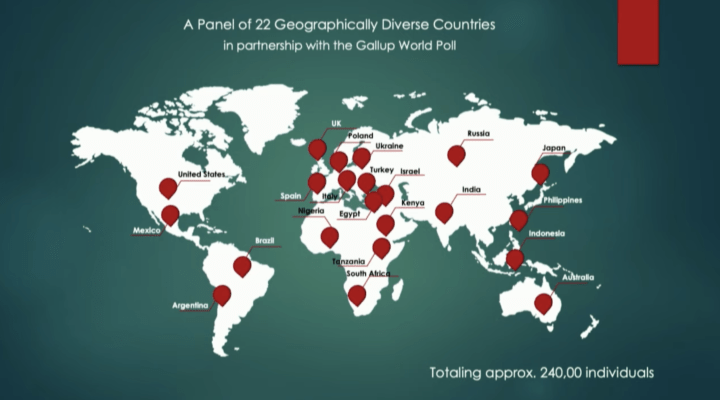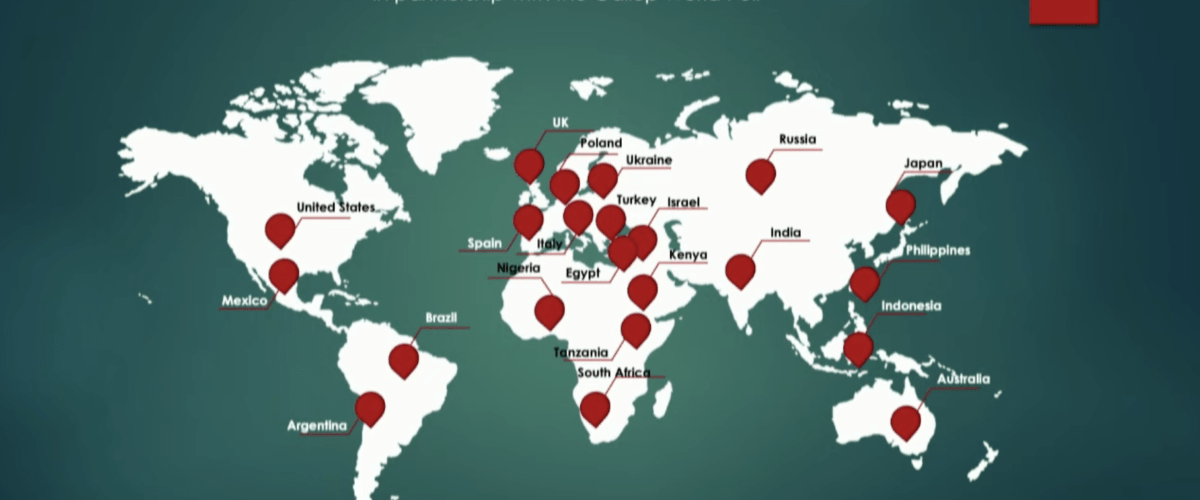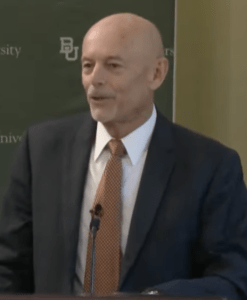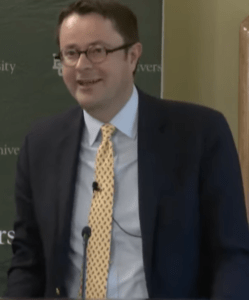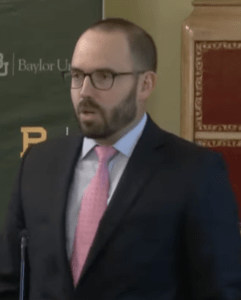Baylor and Harvard university scientists are looking for the factors that contribute to human flourishing around the world. They announced their five-year, $43.4 million study Oct. 29.
The project will evaluate 240,000 individuals from 22 nations over an extended period and will examine a range of measures of well-being. It will draw on the data collection expertise of the Gallup organization and on dissemination by the Center for Open Science.
Study director Byron Johnson, professor of social sciences and director of the Institute for Studies of Religion at Baylor, said the project was three years in the making and is significant in part because it will thoroughly examine the role of religion in human thriving.
Most previous attempts to study that connection were conducted in Western nations, focused mostly on Christianity, and did not span multiple years, he said during a livestreamed announcement of the study’s launch. “We need to move the needle on these things,” he insisted.
Project co-director Tyler VanderWeele said the factors that contribute to flourishing also include physical and mental health, the quality of close relationships, meaning and purpose, and material stability.
‘The type of work needed’
“The Global Flourishing Study is exactly the type of work needed to deeply understand the interplay of key elements in human experience that help us live well, be happy, and experience a sense of meaning and purpose,” VanderWeele, professor of epidemiology and director of the Human Flourishing Program at Harvard, said in a Baylor news release.
The size of the participant panel will help provide levels of data that cannot be replicated by traditional polling, Johnson added in the release.
“It’s an extraordinary opportunity for the Baylor-Harvard team to lead a panel study like this,” he said. “Because our sample size is so large, we will be able to examine all of the world’s great religions and the role, if any, that they play in human flourishing.”
The project will examine what it means to live well, to be truly healthy and to thrive, the Baylor release added. “Researchers and clinicians have typically answered these questions by focusing on the presence or absence of various pathologies — disease, family dysfunction, mental illness, or criminal behavior. But such a ‘deficits’ approach tells only so much about what makes for a life well-lived — about what it means to flourish.”
The focus will include individuals from Argentina, Australia, Brazil, Egypt, Germany, India, Indonesia, Israel, Japan, Kenya, Mexico, Nigeria, the Philippines, Poland, Russia, Turkey, South Africa, Spain, Tanzania, Ukraine, the United Kingdom and the United States.
The long-term focus also is expected to produce data related to the health, economic, political, psychological, political and spiritual determinants of human flourishing.
Filling the knowledge gap
During the livestreamed event, Gallup Senior Partner Joe Daly explained the Global Flourishing Study will benefit from nearly two decades of research his organization has conducted into the human condition globally. But the Baylor-Harvard collaboration also will fill a gap in knowledge on the role of religion in flourishing.
“We are going to be able to see what is driving what,” Daly said.
The comprehensive approach of the study is unique, Rajesh Srinivasan, global research director of the Gallup World Poll, said in the release.
“There are several examples of probability-based, nationally representative studies that track the same respondents over time in a single country,” Srinivasan said. “But few have attempted to cover multiple countries. The scope of this project is unprecedented and likely to yield valuable insights for global survey research using this type of methodology.”
The questionnaire that resulted from the project’s developmental phase was summarized in a Gallup report. The partnership with the Center for Open Science will present findings to educators, journalists, policy makers and researchers around the world.
 “The rigor and transparency applied to its analysis will increase trust in the research that comes from this work and will lower barriers to worldwide, equitable access to this information,” center director David Mellor said.
“The rigor and transparency applied to its analysis will increase trust in the research that comes from this work and will lower barriers to worldwide, equitable access to this information,” center director David Mellor said.
The larger goal of the study is to transform the study of human flourishing into a mature academic discipline, Gallup CEO Jim Clifton said in the Baylor release. “The Global Flourishing Study is a methodological innovation that can truly change the world — truly change how the world is led.”
The price tag for the study is being covered by a number of sources, including the John Templeton Foundation, the Fetzer Institute, the Paul Foster Family Foundation, the Wellbeing for Planet Earth Foundation and the David & Carol Myers Foundation, among others, Baylor announced.

